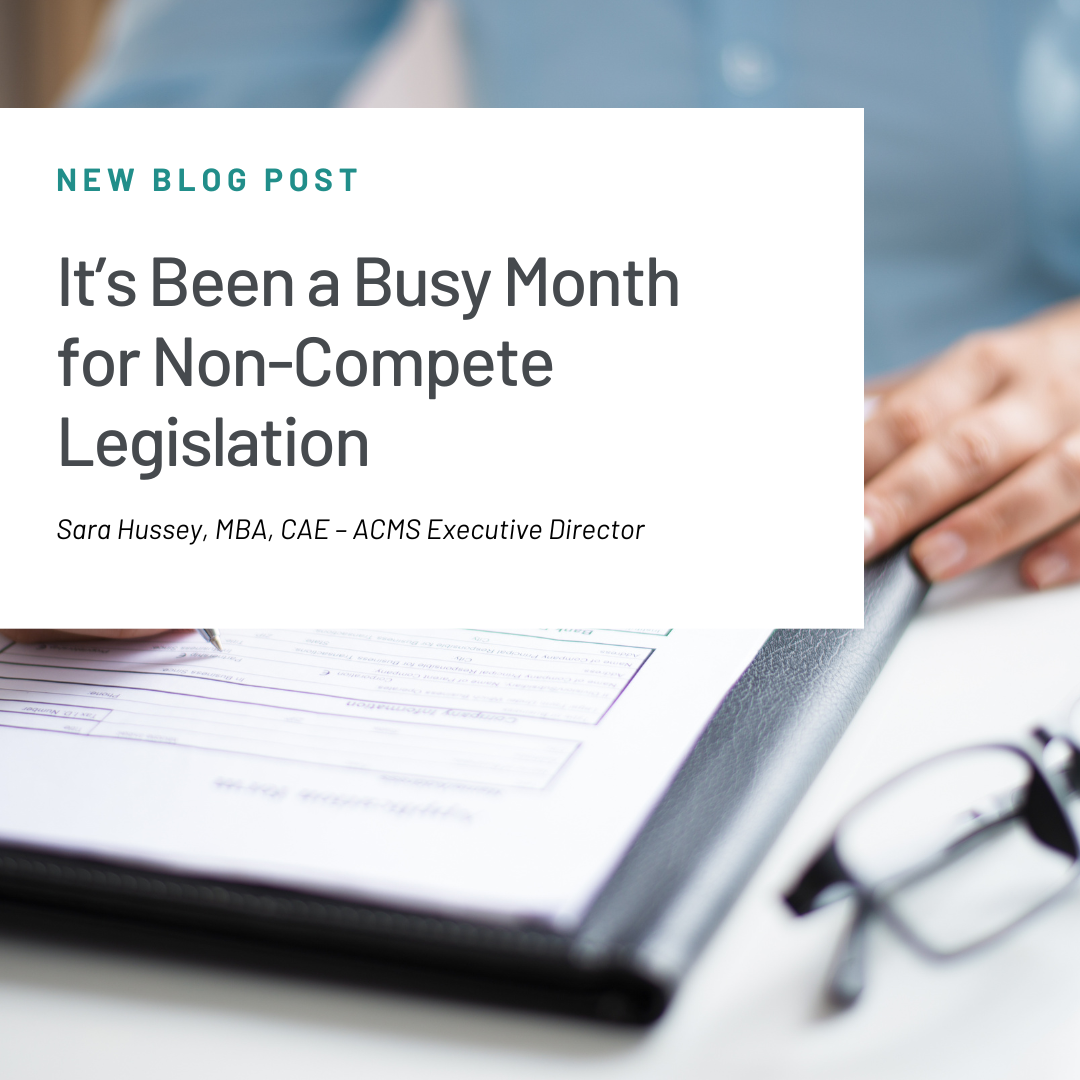
By: Sara Hussey, MBA, CAE – ACMS Executive Director
It has been an interesting and busy month for legislation around non-compete agreements. Earlier this month, Pennsylvania state legislation passed its first hurdle when HB 1633 passed with significant bipartisan support in the PA State House, with a 150-50 vote. This legislation seeks to prohibit medical employers from using restrictive noncompete agreements that prevent doctors, nurses, and other medical professionals who leave a job from practicing elsewhere. It would also allow patients access to the doctors and care of their choice. This bill will now move to the PA Senate for consideration.
The Federal Trade Commission (FTC) voted 3-2 on Tuesday, April 23, to issue a final rule striking new non-compete agreements for all workers and phasing out existing non-competes for all but senior executives across “most employers.” However, here is an important caveat for ACMS members and all physicians, especially in Allegheny County, to take note of: Because the FTC’s authority only extends to for-profit businesses, the rule will not affect employment agreements entered into by workers employed by nonprofit organizations. This is one of several points of contention that have been raised by hospital industry groups opposing the ban, including the American Medical Association.
In its letter to the FTC, the American Medical Association (AMA) noted that 57% of U.S. hospitals operate as not-for-profits, “significantly tilting the playing field in favor of these large employers.” Although there is considerable uncertainty and debate about the extent to which the Proposed Rule will be inapplicable to all 501(c)(3) hospitals, it is likely that the Proposed Rule will not apply to some, if not many, of the country’s nonprofit hospitals. Nearly 57 percent of all hospitals are nonprofit. The prospect of disparate treatment of some nonprofit hospitals vis-a-vis independent physician practices would give those hospitals competitive advantages that physician practices would be denied. For example, a nonprofit community hospital not subject to the Proposed Rule could use non-competes to protect its Long-term Business Interest (LBI), but physician practices in the community would be prohibited from doing so. By doing this, the Proposed Rule could make it difficult, if not financially infeasible, for some independent practices to grow or even sustain themselves. Disadvantaging and weakening physician practices is the last thing that the FTC should potentially promote when competition is needed in many parts of the country and at a time when the number of physicians working in private practice has reached historic lows (49.1 percent).
Some things to note:
- Under this rule, non-competes tied to the sale of a business, like a physician practice, would still be allowed.
- This ban will face many legal challenges, and it will likely be years before it can take effect.
- Many states are looking to handle the ban of non-competes at the state level (including Pennsylvania) versus the federal level.
Read the 570-page rule in full here.
The ACMS will continue to keep our members updated on news from the FTC, as we expect legal challenges to emerge in the coming days. But most notable for our members is that this new rule does not apply to nonprofit health systems, so the focus should remain on working to enact the state legislation happening in Harrisburg through House Bill 1633. The ACMS and PAMED team will share updates on that legislation as soon as we know when the PA State Senate will be taking that up for consideration.

